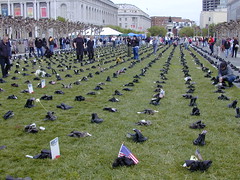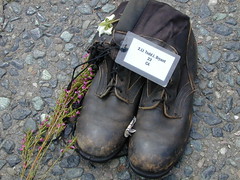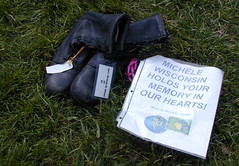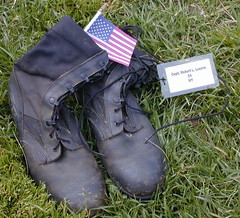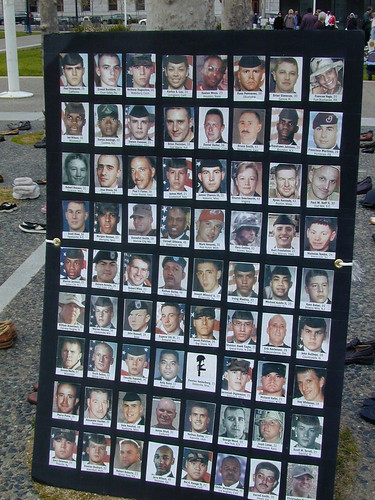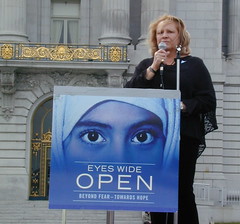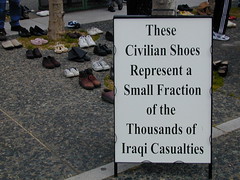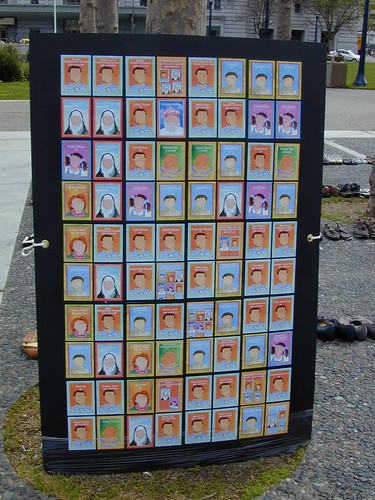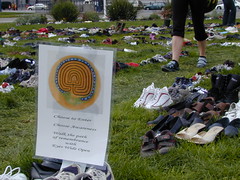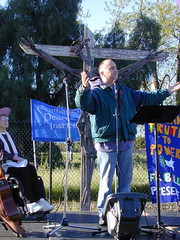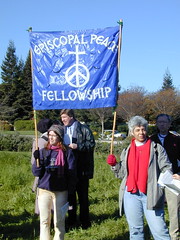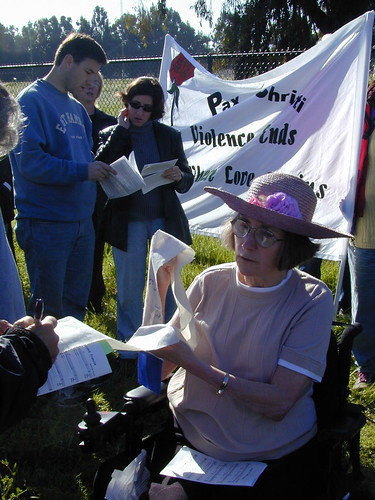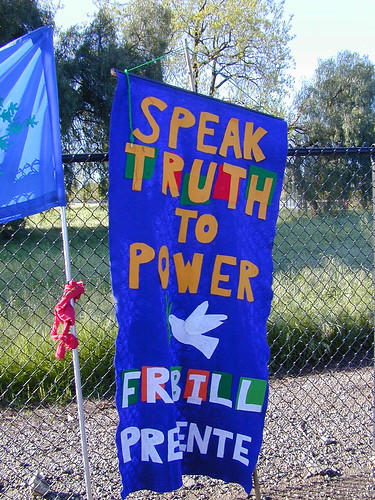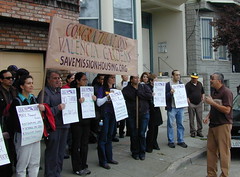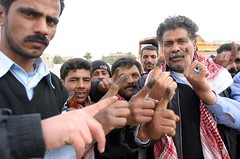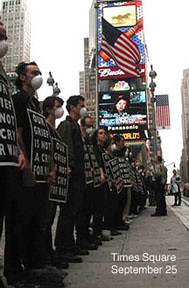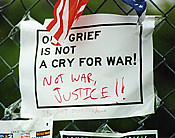
The San Francisco Chronicle's story is so true to the event (though not nearly as good in the morning edition as in the immediate coverage) that I'll mostly quote here.
Noisy demonstrators armed with signs and outrage once again greeted Gov. Arnold Schwarzenegger -- this time at San Francisco's Ritz-Carlton Hotel -- at a Tuesday evening fund-raiser expected to raise more than $100, 000 for his proposed ballot measures.
Neophyte protesters mixed with veteran activists. Tourists on cable cars waved and snapped pictures, motorists honked, and the music ranged from "Born in the U.S.A." to "I Left My Heart in San Francisco."…
Protester Juanita Yee, 40, of Brisbane, denounced the governor for failing to support public education in the ways he had promised. "I can't afford private school," said Yee, who has four kids. "It's not an option with a stay-at-home mom and a father who's a union plumber."
Santa Clara fire Capt. Bill Stone had never attended a protest before but was spurred to do so Tuesday by proposed benefit cuts for public safety employees. "Firefighters will step up when it's an issue that affects people like teachers," said Stone, who arrived with seven other firefighters from Local 1171 in Santa Clara.
The crowd was largely middle-age, equipped with signs such as "Grope-n- ator, keep your hands off our retirement" and "Nurses heal, Arnold wheels and deals."
John Bilicska, 46, an unemployed North Beach resident who used to work at UC Irvine, said, "The governor's calling the people who do the work the special interests, while the businesses that are shipping our jobs overseas are just great. I don't trust him. He's a typical Republican politician."
This was not a crowd that police were going to beat up on -- this was the people who make the state a place where people can live. We're seeing Governor against the people.
The Mercury News also had good coverage:
While an airplane flew overhead, trailing a banner that read, ``ARNOLD: CALIFORNIA IS NOT FOR SALE!'' the protesters massed along the side entry on Pine Street, closing it several times, before police moved them aside.
When a guest did manage to enter, the protesters chanted: ``Shame on you! Shame on you!''
Former Secretary of State George Shultz, a San Francisco resident and Republican friend of Schwarzenegger, was escorted in by police. Despite the protests, the governor did manage to get into the hotel at some point.
Later, the protesters marched down Grant Street into Chinatown, while tourists gawked, and closed the intersection of California and Grant streets. They also briefly closed the cable car …
The Oakland-based California Nurses Association, which is angry at the governor for temporarily suspending rules that would require hospitals to hire more nurses, spent the past few days organizing Tuesday night's protest, even calling a press conference Monday to build media interest in it.
Tuesday's event also included firefighters, teachers, and members of engineering and construction unions. They held signs and boogied to the amplified music of Aretha Franklin's hit ``Respect.'' The protesters included a contingent of 9-feet-tall women on stilts, called ``Women Walking Tall,'' who said they had come to support the nurses.
``We started something. Now everyone's joining us,'' said Lindy Herrera, a neonatal intensive-care nurse at Good Samaritan Hospital in San Jose. She carried a sign that read, ``Patients are special interests.''
Joyce Bartky, 67, a retired teacher from Pacifica, said she had never been to a protest before, but came out of anger at the governor for proposing to change the teachers' pension system. ``I'm so mad,'' she said. ``This will discourage young people from going into education.''
On to the next adventure.












